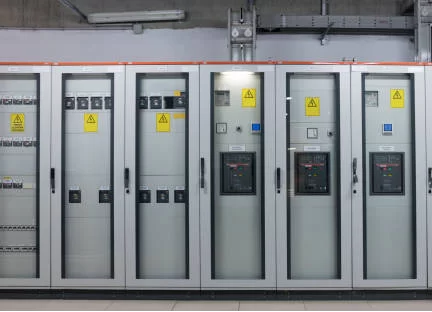Understanding the Market Trends of Battery Electric Storage Systems (BESS)
As the global push for sustainability accelerates, the spotlight shines brightly on battery electric storage systems (BESS). These systems are becoming essential components in the transition to cleaner energy sources. This article delves into the current market trends surrounding BESS, exploring how they are reshaping the energy landscape and what this means for businesses and consumers alike.
The Growing Demand for battery electric storage systems BESS
One of the most notable trends in the energy sector is the increasing demand for BESS. As renewable energy sources like solar and wind become more prevalent, the need for effective energy storage solutions grows. Battery electric storage systems BESS provides a way to store excess energy generated during peak production times and release it when demand is high. This capability not only enhances energy reliability but also supports the integration of renewables into the grid.
Utilities are increasingly recognizing the value of battery electric storage systems BESS for grid stabilization. By investing in large-scale storage systems, they can better manage fluctuations in energy supply and demand. This trend is particularly important as more intermittent energy sources come online. BESS acts as a buffer, ensuring a steady power supply and reducing the risk of blackouts.
Technological Advancements Driving Change
Advancements in battery technology are another significant driver of the battery electric storage systems BESS market. Traditionally, lithium-ion batteries have dominated the landscape due to their high energy density and declining costs. However, newer technologies, such as solid-state batteries and flow batteries, are emerging as competitive alternatives. These innovations promise to enhance efficiency, safety, and longevity, making BESS more appealing to a broader audience.
As these technologies continue to mature, they are becoming more affordable, which is crucial for widespread adoption. This is particularly relevant for commercial and residential users, who are increasingly looking for reliable and cost-effective energy solutions. The falling costs of BESS not only make them attractive for individual consumers but also for businesses aiming to reduce operational costs and carbon footprints.
Impact of Electric Vehicles (EVs)
The rise of electric vehicles is profoundly impacting the battery electric storage systems BESS market. As EV adoption increases, so does the need for charging infrastructure. BESS can play a critical role in this ecosystem by providing energy storage solutions at charging stations. This not only helps manage the load on the grid but also allows for faster charging capabilities, particularly during peak hours.
Moreover, many EV owners are beginning to consider home BESS as part of their energy strategy. By integrating home solar panels with a battery storage system, they can charge their vehicles during the day and use that stored energy at night. This synergy between EVs and BESS offers a sustainable solution for personal transportation and energy management.
Government Policies and Incentives
Government support is another key factor driving the growth of the BESS market. Many countries are implementing policies that promote the adoption of renewable energy and storage technologies. Incentives such as tax credits, rebates, and grants encourage businesses and homeowners to invest in battery electric storage systems BESS.
In addition to financial incentives, regulations mandating increased renewable energy usage are pushing utilities to explore BESS solutions. These policies not only help reduce greenhouse gas emissions but also stimulate economic growth in the clean energy sector.
Market Projections
Looking ahead, the future of the BESS market appears bright. According to various industry reports, the market is expected to continue its robust growth trajectory. Factors such as the increasing penetration of renewable energy sources, the need for grid stability, and the growing popularity of electric vehicles will drive demand for battery storage systems.
Furthermore, as more industries recognize the importance of sustainability, the demand for BESS is likely to extend beyond traditional energy markets. Sectors such as telecommunications, manufacturing, and even agriculture are exploring energy storage solutions to enhance their operations and reduce costs.
Battery electric storage systems BESS are reshaping the energy landscape and paving the way for a sustainable future. With growing demand driven by renewable energy integration, technological advancements, and supportive government policies, the market for BESS is poised for significant expansion.
As businesses and consumers alike become more conscious of their energy consumption, BESS will play an increasingly vital role in energy management strategies. Whether it’s for grid stabilization, electric vehicle charging, or individual energy savings, the benefits of BESS are undeniable.
In this evolving market, staying informed about trends and technologies will be crucial for stakeholders looking to leverage the opportunities presented by battery electric storage systems. Embracing these innovations will not only contribute to a greener future but also ensure energy resilience in an increasingly complex world.

